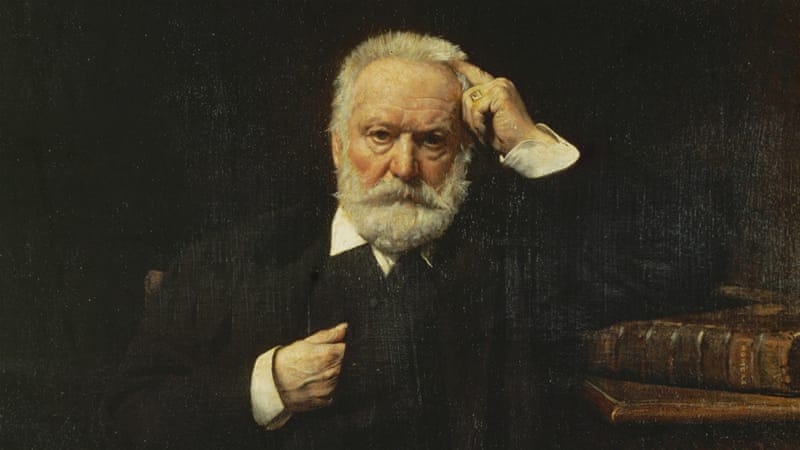Over the years, there have been many great authors who have had unconventional cures for writer’s block. The German poet Friedrich Schiller would leave apples in a drawer in his writing desk and let them rot because the smell helped him work. Dan Brown, author of The Da Vinci Code, hangs upside down from gym equipment when he has difficulty writing. Perhaps the strangest solution to writer’s block is that of Victor Hugo. The French author started his novel, Notre Dame de Paris (The Hunchback Of Notre Dame), in the fall of 1830, and he wanted to finish it by February of 1831. He decided to buy a full bottle of ink and lock himself inside of his house until he was finished. In and of itself, this does not seem too out of the ordinary. However, Hugo did not stop there. He would give his clothes to his valet and force him to hide them, therefore preventing Hugo from leaving the house. While some think that Hugo had a blanket or shawl that he used during this time, others believe he wrote his book fully in the nude. Strange as this may seem, it actually worked. Hugo not only used up his entire bottle of ink, but he also finished Notre Dame de Paris before his deadline. This method did not seem to work for one of his other famous works, Les Misérables, which historians estimate took him 17 years to write. This timeline can probably be excused by the fact that Les Misérables, with a total of 655,478 words, is the 20th longest book in the world. It is longer than Leo Tolstoy’s War and Peace and over eight times the average length of a novel.
Hugo’s unusual life hardly stops at his cure for writer’s block. He was incredibly afraid of octopi, and in his novel Toilers of the Sea, he wrote: “the tiger can only devour you; the devil-fish, horrible, sucks your life-blood away. The muscles swell, the fibres of the body are contorted, the skin cracks under the loathsome oppression, the blood spurts out and mingles horribly with the lymph of the monster, which clings to the victim with innumerable hideous mouths.” This excerpt was in reference to an octopus attacking people. Despite his fear of the creatures, Hugo produced a drawing of an octopus with its tentacles contorted into the initials V. H. Hugo’s inspiration for this novel was the island of Guernsey. He lived there in exile for 15 years of his life after Louis Napoleon Bonaparte declared himself emperor of France. Hugo’s exile was more a matter of pride than anything else, and he only came back to France in 1870 when the Second Empire, and Louis Napoleon Bonaparte’s rule, ended.
While he was in exile, Hugo was quite interested in spiritualism, which is the belief that spirits are able to make contact with the living through a medium. Hugo wanted to make contact with his daughter Léopoldine, who died in a boating accident with her husband in 1843. He believed he had successfully made contact with her, but he did not stop there. Hugo also believed that he made contact with Plato, Galileo, Sir Walter Scott, Shakespeare, aliens from Mercury and Jupiter, Hannibal, and Rousseau, all of whom spoke French and frequently conveyed their thoughts through rhymed Alexandrines. The Spirit of Civilization in human form visited him and said “‘Great Man, finish Les Misérables!’” Hugo also thought that Jesus visited him three times. In his meetings with Hugo, Jesus denounced Druidism, a Celtic religion, pointed out faults in Christianity, and said that a new religion with Hugo as its prophet should be created. While Hugo was never recognized as a prophet, he became a Caodaist saint. Caodaism is a combination of Buddhism, Christianity, Confucianism, Daoism, and spiritualism. Victor Hugo is one of the Venerable Saints, alongside Sun Yat-Sen, a Chinese philosopher, and Trạng Trình, a Vietnamese educator and poet.

